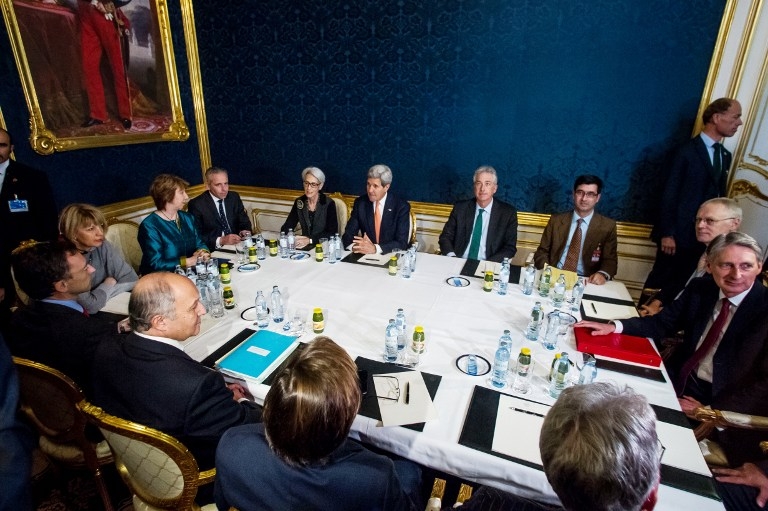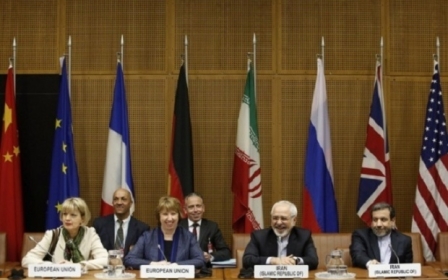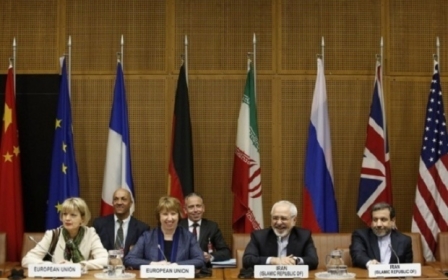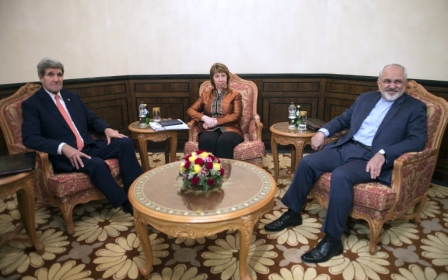Frenzied diplomacy as Iran nuclear deal deadline nears

Iran's foreign minister will remain in Vienna for talks with US Secretary of State John Kerry, three days before the deadline to strike a landmark nuclear deal with world powers.
It was rumoured earlier on Friday that Mohammad Javad Zarif would return to Tehran following negotiations, but sources confirmed the foreign minister would remain in Vienna, where talks are ongoing ahead of a Monday deadline.
Iran and the six powers - the US, China, Russia, Britain, France plus Germany - have been negotiating intensively since February to turn an interim accord with Iran reached a year ago in Geneva into a lasting agreement.
“We have presented different ideas since [a meeting earlier this month] in Muscat. These ideas are not yet at the point for Zarif to be able to take them back to Teheran and the talks will continue,” a source in the Iranian delegation told AFP on Friday.
Kerry himself was also due later Friday to leave the high-stakes ongoing talks in Vienna for Paris for talks with European counterparts and will "stay in close touch" with Washington, State Department spokesperson Jen Psaki said.
"His future travel schedule is still being finalised, and we have not yet determined when he will return to Vienna," Psaki said as Kerry ended a meeting with Iranian counterpart Zarif.
To extend or not to extend?
After 12 years of rising tensions, such a deal is aimed at easing fears that Tehran will develop nuclear weapons under the guise of its civilian activities - an ambition the Islamic republic has long denied.
French Foreign Minister Laurent Fabius joined the talks in the Austrian capital Friday, urging Iran to "seize this opportunity" for a deal while British counterpart Philip Hammond called for Iranian "flexibility".
"The prize for Iran is huge - access to very large amounts of frozen assets, the ability to trade freely with the world again and the ability to reset relationships with the international community," Hammond said.
He warned, though, that "we have a long way to go if we are to get to a deal before the deadline on Monday".
"Flexibility" from the Iranians was needed and would be reciprocated. However, "time is short," he stressed.
Most analysts expect Iran and the six powers to decide to extend the deadline. But Kerry on Thursday insisted this was not on the table.
"We are not discussing an extension. We are negotiating to have an agreement. It's that simple," Kerry said in Paris before he went to Vienna.
Hammond had said on Wednesday that he was "not optimistic" the deadline could be met, suggesting that the best hope was for another extension - and provided there was "some significant movement".
Russia's main negotiator in the talks, Sergei Ryabkov, said Thursday that the talks were being held in a "tense atmosphere" and agreeing the mammoth accord would be "very difficult without a new spirit".
Russian Foreign Minister Sergei Lavrov said in Moscow on Friday that "all the elements are already on the table" for a deal and called on negotiators to "show political will".
Iran's speaker of parliament Ali Larijani meanwhile told Iranian media on Thursday: "We are constantly cooperating (but the other side) is raising the tone."
He added: "We hope that the other side will behave in a rational manner... and won't take the wrong path."
Deal could run for decades
Some areas appear provisionally settled in what would be a highly complex deal that would run for many years, even decades.
But two key issues remain: enrichment - a process that renders uranium suitable for peaceful uses but also, at high purities, for a weapon; and the pace of lifting sanctions.
Diplomats say Iran wants all sanctions lifted at once. The six world powers want however to stagger any suspension to be sure that Iran does not renege on its commitments.
Iran wants to massively ramp up the number of enrichment centrifuges - in order, it says, to make fuel for a fleet of future reactors - while the West wants them dramatically reduced.
New MEE newsletter: Jerusalem Dispatch
Sign up to get the latest insights and analysis on Israel-Palestine, alongside Turkey Unpacked and other MEE newsletters
Middle East Eye delivers independent and unrivalled coverage and analysis of the Middle East, North Africa and beyond. To learn more about republishing this content and the associated fees, please fill out this form. More about MEE can be found here.




